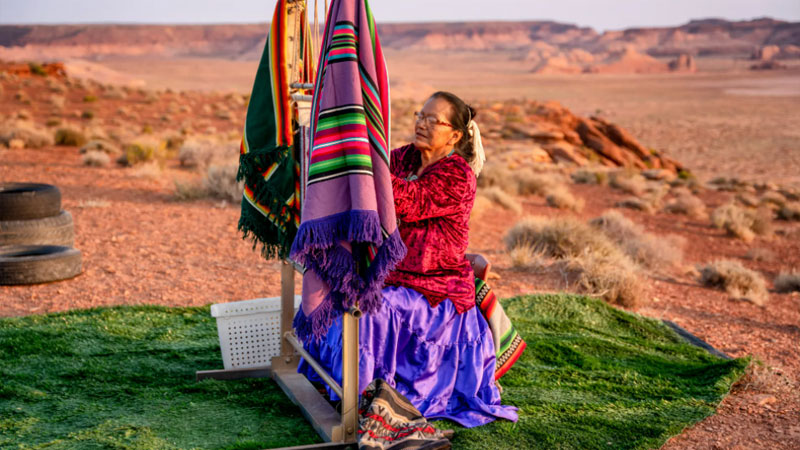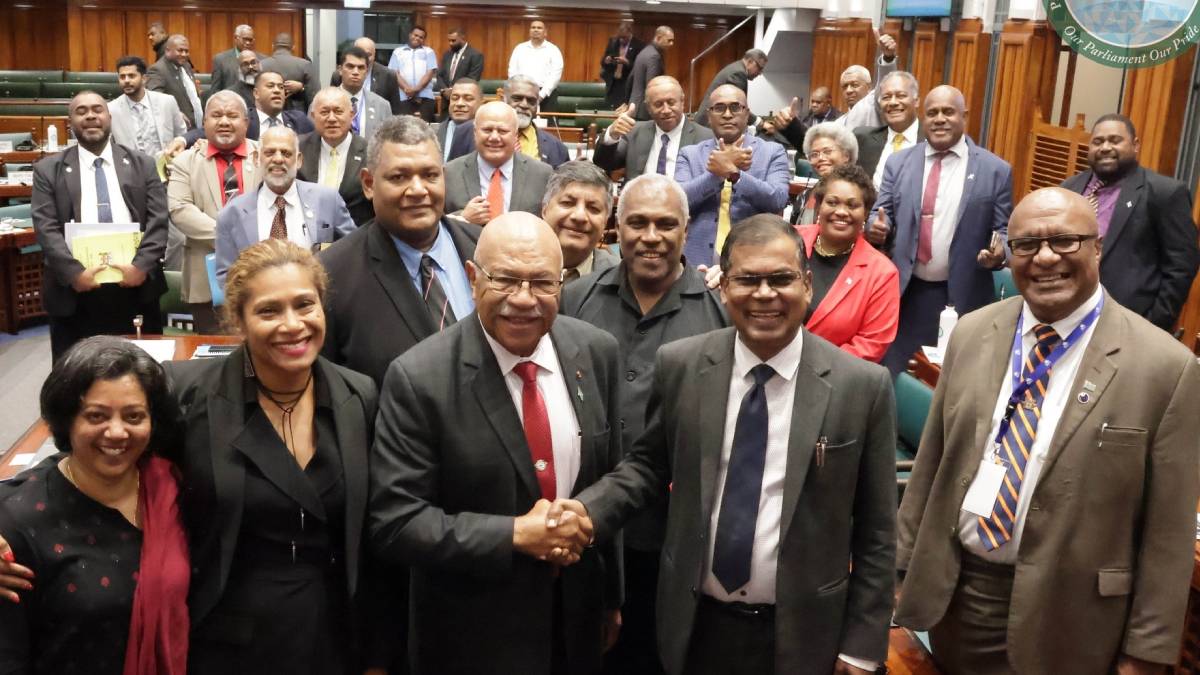
Growing up on Nipissing First Nation—my Indigenous territory in Ontario, Canada—someone in my big, crazy family was always creating. My mother is Ojibwe and one of 18 siblings, and when we weren’t all gathering for a gigantic Sunday breakfast at my grandmother Leda’s home, you would find my aunties either cooking, sewing, or beading on their own accord.
Walking into any one of my auntie’s houses, you’d always see a project in action—they could be making my sister’s jingle dress for the summer powwow, or crafting a pair of fur-lined moccasins for my cousin’s upcoming birthday.
Though my reservation is remote and hours away from any big city, witnessing this constant designing-in-action on the rez is what, as I would later realize, ignited my love for fashion. After all, I was witnessing special, handmade creations come to life almost on the daily.
My aunties’ flair for creating such beautiful objects, like my beaded fur mittens, is not unique to my family tree. In many Indigenous families, aunties are the matriarchs who carry forward our traditions.
Though the moniker “Native auntie” is more of a term of endearment for Indigenous elders.
They can be your literal aunts, a close family friend, or a respected figure in your community.
Regardless, they teach the next generation our tribe’s special customs, so that we can continue championing our heritage and keeping our culture alive.
This is especially important given our people’s history; there was once a time where our customs were legally banned. Of course, Indigenous women have always played a crucial role in maintaining the wellbeing of our communities.
Historically, women were respected for being craftwork artists, healers, and damn good cooks.
Today, aunties continue to be the pillars of our communities, ensuring our past is carried into the present.
This has certainly been true within my own family.
My sister and my cousins have all learned how to sew or bead the Ojibwe way, thanks to the guidance of our talented aunties (intricate floral beadwork is an Ojibwe signature).
Though I’ve never possessed a talent for craftwork, I have embraced Indigenous style in my own way.
Over the past few years, I’ve worked with my mom and my aunties to design my own traditional garments, all of which are embedded with special meaning.
The first thing we made together was in 2020.
My mother, and my aunties Joan, Lee, and Tammy, and I decided to make my first traditional ribbon shirt.
It was based on a shirt my grandmother had made for me as a kid, though we updated the ribbon colors to reflect who I am today (the blue, red, yellow, and white hues represent the favorite colors of my parents and grandparents).
An image of a crane, embroidered onto the back, reflects my family’s crane clan.
In Ojibwe culture, Indigenous people belong to one of seven clans, each one holding different responsibilities and qualities (the crane clan represents leadership.)
Stay tuned for the latest news on our radio stations

